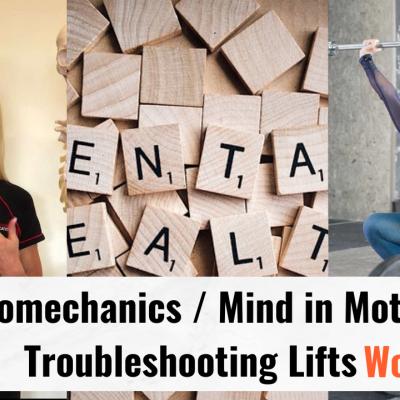Dignity in Mental Health, Ulster University Magee Campus
The British Psychological Society
If you are in the North West on 14 October come along and hear our speakers on the topic of Dignity in Mental Health.
This is a joint event between NIBPS, its North West Hub and Ulster University to mark World Mental Health Day.
Programme
6pm: Arrival – tea/coffee Welcome from Dr Jamie Murphy, Ulster University
6.20pm: Emotional Resilience: Dignity & wellbeing for all (Ms Alison Clarke)
6.50pm: Cultural competency in working therapeutically with ethic minority populations. (Ms Sarah Boyce)
7.20pm: Dignity and Adolescent Mental Health: A focus on prevention and self harm (Dr Karen Kirby and Dr Donal McAteer)
7.50pm: closing comments/q&a session – Dr Jamie Murphy
Talk details
Emotional Resilience: Dignity & wellbeing for all
Ms Alison Clarke, Business and Coaching Psychologist)
Mental Health Foundation claims one in four people have a mental health issue per year. NHS Confederation claims 2 million more UK adults will seek mental health services by 2030 precipitating a growing funding gap.
Current approaches to treating mental health have become out-dated, if not redundant.
Working with people accessing psychological coaching services outside traditional NHS/GP/Mental Health Services routes we have made the following observations.
- Circumstances alone do not determine wellbeing but also interpretations people apply to themselves and their lives in those circumstances
- Most people are unaware of how a lifetime of interpretations have shaped their view of themselves, their identity and their lives
- Interpretation and identity need not be permanent but are open to lasting transformation if examined
- re-interpretation of entrenched habits of thought can demonstrate their redundancy and enable the creation of a new perspective
- transformation is reinforced by learning to manage the impact of emotional changes on physical wellbeing
- positive feedback helps embed the new perspective, habits of thought and actions arising from the transformed point of view
This approach has yielded positive results with work related stress, severe anxiety, depression, relationships, procrastination and more.
Life experiences frequently stimulate automatic defensive reactions within us. Unaware, we remain at the mercy of automatically triggered stress hormones. Normalising conversations about emotional variability and teaching how to understand and intentionally manage emotional reactions empowers people to deal with life’s difficulties. It can transform ‘mental health’ from a growing disease competing for funding in an already overstretched health service into wellbeing through emotional resilience, a life skill for all.
Cultural competency in working therapeutically with ethic minority populations. (Ms Sarah Boyce, Counselling Psychologist, Northern Trust)
Further information will be available soon
Dignity and Adolescent Mental Health: A focus on self-harm, prevention and help seeking
Dr Karen Kirby and Dr Donal McAteer, Ulster University
This presentation will discuss how we conceptualise dignity when it comes to young people, and how this plays a vital role in both the prevention and promotion of their mental health. Pervasive notions around dignity and health often relate to adults who are vulnerable from either a physical or mental health perspective. However, when it comes to the life and care of younger people, ‘dignity’ is a word we do not often associate as being of primary importance, and rather it can be seen as a subsidiary factor in the pathway to mental health and wellbeing. Dr Donal McAteer will explore more closely this concept of dignity and what place it holds in our approach to caring for our younger clients. Dr Karen Kirby will also discuss the immediate relevance of this, as demonstrated in the findings of recent research carried out in the School of Psychology at Ulster University. This research has focused on pupils in post-primary school, investigating the factors associated with why young people may resort to self-harming behaviours as a means of coping with life stressors and difficulties. The role of dignity and its correlates within participants’ experiences will be discussed and explored, in particular highlighting the impact this can have on help-seeking and underlining the need for practitioners or care providers to incorporate these considerations into the support of their clients.
Dr Karen Kirby (PhD, MSc, BSc. C.Psychol. Associate Fellow – AFBPsS) is a Lecturer of Counselling Psychology, based in the School of Psychology, Ulster University, Magee Campus. Dr Kirby is a Counselling and Health Psychologist, chartered with the British Psychological Society, and registered as a Practitioner Psychologist with the Health and Care Professions Council (HCPC). In her previous professional clinical practice work, Dr Kirby worked in the area of chronic disease, in particular providing psychological services to patients with Diabetes Mellitus (Types 1 and 2), and in the area of Child and Adolescent Mental Health/ Paediatric Psychology. Her main research interest lies within the area of child and adolescent psychology/mental health, in particular understanding factors which predict self-harm in young people, and how emotional regulation/emotional resilience may play a role in preventative mental health interventions. In terms of health psychology research, her interest lies in understanding the role of mental health factors in the prevention of Type 2 Diabetes. Dr Kirby has also trained a systemic family practitioner (intermediate level), associated with the Association of Family Therapy.
Dr Donal McAteer is a Lecturer in Counselling Psychology at Ulster University, and is the Course Director of the MSc Applied Psychology (Mental Health & Psychological Therapies). He is a Registered Counselling Psychologist and Systemic Practitioner, and is an Associate Fellow of both the British Psychological Society and the Higher Education Academy. He undertook his doctoral training in Counselling Psychology at the University of Surrey, working in a range of clinical practice settings from eating disorders to oncology, and conducting research in the area of therapeutic processes and relationships. Dr McAteer returned to Northern Ireland in 2007 to work in clinical health psychology and in the area of adult mental health, and then joined Ulster University in 2011, where he is a trainer and co-ordinator on postgraduate programmes for a variety of psychological and therapeutic approaches. His research interests lie in the areas of adult mental health, the influence of therapeutic relationship and process factors on therapeutic outcome, secondary and tertiary traumatic stress processes, and the use of qualitative research methods.
Registration details
This is a free event open to everyone.
TO BOOK your place please click on the link below:
https://response.questback.com/britishpsychologicalsociety/mentalhealthdayulster/
Room MG207B, Main Building, Ulster University, Magee Campus
Dates: 14/10/2015 - 18:00 - 20:00Contact Information:If you have any queries, please email [email protected] . Please start the email subject line with the phrase ‘BPS NI Mental Health Day Ulster Oct 15’.
Organiser: BPS Northern Ireland Branch supported by Ulster UniversityDate and Time
Location
Ulster University
Magee Campus
Derry
United Kingdom



